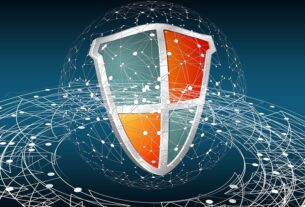With the advancement of technology, most formal and informal communication channels have been digitalized. This included even financial transactions. The use of digital platforms and systems has made life much easier, but it still possesses a few risks here and there. These threats include illegal methods being used to steal user information, using stolen credit and debit card details for online transactions, and even hacking into an individual’s social media account.
But all these factors do not imply that you should refrain from using the available platforms. You can use them but have a little caution in everything you do; above all, your information needs to be safe. You can take a few precautions to help you be on the safer side of using online platforms. We will give you an outline of how you can protect yo0urself from various cyber-attacks.
- Do not share the same password on different accounts.
If you are an individual who uses the same password for accounts such as Gmail, Facebook, and others, they can do so much damage to you if someone gets hold of your passwords. This means that the person will access all the other accounts that share the same password. To ensure that you are on the safer side of such attacks, use different passwords for the most important platforms, especially your emails, online transaction accounts, and social networks. In addition, please use random texts as your password instead of words that people could easily guess.
- Update your software regularly.
Software such as browsers, online payment applications, social media accounts, and mobile systems have a slight vulnerability that could give hackers a chance to steal your information. Many developers will always take their time to repair the existing flaws and updating software features. It is therefore important to update your software to take care of the delicate system features. Always check if your developer has added more essential features and update your system accordingly.
- Avoid opening random links on your browser.
When using the internet, avoid suspicious opening links such as lotteries, prizes, gifts, and discounts. These are ways many hackers choose to hide viruses that would infect your system and steal your information. Such emails are very enticing because they tell you about a considerable amount of money you have won in a lottery. You can even get an email telling you that you have won an iPhone. You mustn’t open such apps.
- Always download software from authentic sources.
With many platforms existing in the digital world, there are many places where you will find applications ready for installation. Unfortunately, this has created room for attackers to set up unauthorized software and applications that can be used to steal from unsuspecting users. In addition, much of this software exist in spaces that are not regulated. You, therefore, have to ensure that you are getting your software from a trusted site. Secure sites have authorization certificates, and you can even check their authenticity before you make a move.
- Use private browsing features on third-party devices.
Sometimes when you are using other devices apart from your ones, you have to be very careful about your information. For example, if you use a public computer or a friend’s computer, you need to use the private browsing feature, also known as incognito mode. The essence of using this feature is because it does not store any data or browsing history. This makes it very hard for someone to track your browsing activities or find your crucial data.
- Use an on-screen keyboard on third-party devices.
You have probably heard about key loggers being used on the internet. A key logger is a software that captures all the data that a user has typed using a physical keyboard. When using a third-party computer, there could be a possibility of them having a key logger. Such software can steal data like passwords or even crucial details. However, when using on-screen keyboards, you are already a step ahead in bypassing keyloggers. They are considered to be safe for the user and the security of the computer.
- Use trusted antivirus software.
Using a computer requires you to use a reputable antivirus. You can choose between paid and free antiviruses that protect against viruses, malware, worms, and other internet threats. Every time you insert a USB stick into a pc, it is essential to scan it for any malware before using it. Then, when you activate the safe browsing feature on your computer or mobile, it can help you avoid opening suspicious links or opening insecure websites. There is a wide range of antiviruses you can use, so you need to look around to get the best that works for you.
- Always check on the URL of the website you are visiting.
There are ways that attackers create fake web pages that resemble well-known websites. These sites would then ask users to input their credentials and other information such as credit card numbers and social security numbers. When you key in your information, they go to the attacker, which is how they steal your information. This kind of attack is known as phishing and has been the primary method of cyber theft. To identify if a website is fake, check if the URL is the actual one you want to visit.
- Check if the site URL is HTTPS instead of HTTP
HTTPS is an internet browsing protocol that uses encryption. HTTPS is more secure than HTTP, which is why you need to ensure that you are browsing on a secure site. If a site using HTTP requests you to input your emails, passwords, and other information, you should not proceed with the transaction. There are very high chances your information will be stolen.
- Use two-factor authentication to log in.
Many people use accounts such as Gmail, apple pay, Google pay, and many more. Such sites require a person to log in, and it is essential to have two-factor authentication. When you enable this option, you will be sent a one-time password (OTP). This makes it impossible for someone to access your accounts even if they know your passwords.
Final words
For a cyber-attack to be successful, the person behind the attack always needs to be more knowledgeable than the victim. The best tool to fight cyber-attacks is to keep looking for knowledge and constantly gathering information about different forms of cyber threats. The people who are most likely to be victims of cyber-attacks are children and people of old age. It is therefore important to share any knowledge about cybersecurity with them and help more people stay safe. You can help your parents to set us their two-factor authentication features. You can also help people by installing antivirus software for them.



